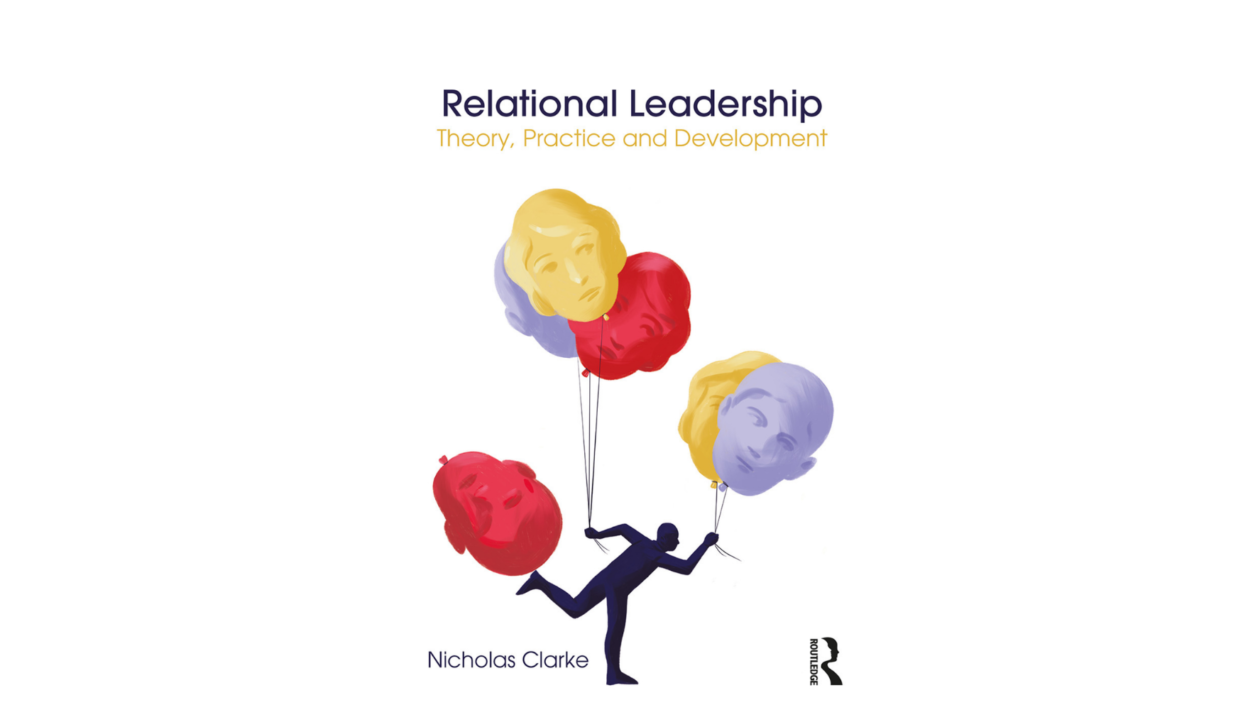By N. Clarke
New York, NY: Routledge (2018) Paperback edition, 200 pages
Reviewed by KERRY O. O. KERR
This book is comprised of ten chapters, inclusive of the introduction and case studies. It introduces readers to the most up-to-date research in this area and the differing theoretical perspectives that can better understand leadership as a relational phenomenon.
Clarke begins with a detailed introduction to what relational leadership is, highlighting the challenges of capacity, context, and responsibility. He summarizes relational leadership as an umbrella term that refers to a collection of leadership theories and perspectives. Clarke then builds his case for relational leadership by highlighting that complexity, dynamism, and increasing irrationality of organizational life have placed strains on traditional leadership notions. Thus, he proposes that relational leadership is a far more effective way to organize and implement leadership.
I like Clarke’s approach because he traced several authors who wrote about relational leadership before it became popular. Although these ideas are not new, many leaders neglect to use them; this is a disadvantage to the leaders, as relational leadership can help leaders and organizations grow.
Clarke further explains that the term “entity perspective” views relationships as real, as an interconnection between individuals or individual entities. Hence, ideally it speaks to the relationship between leader and member, an entity, or an organization. In his discussion of the engagement between leader-member exchanges, Clarke discusses how the consequences had from this exchange can make or break an array of capacities.
Notions of respect, trust, and mutuality struck a nerve as it is described as the sine qua non of leadership. These are the basic tenants of relationships. As was proposed, production can grow in areas where respect and trust are exhibited. In plain descriptive analogy, Clarke suggests three types of respect and their relationship to work outcomes. These three—appraisal respect, identification respect, and recognition respect—open thoughts of comparison between servant leadership and relational leadership. With this proposition, servant leadership may be found within the recognition respect since it emphasizes ethical, fair, and trustworthy behavioral principles.
I admire Clarke’s approach to relational leadership because it opens the reality of the human factor. If we consider Maslow’s hierarchy of needs, we find that the relational element within the leadership structure includes the employee/member’s needs and should be considered, since this is what relational leadership purports. As the leader/organization works to have that relational element constructed, the employee/member will be a part of the bargaining table and will be included as the best solution is determined. Clarke identifies this thought pattern as emotional intelligence. Here, he suggests that perceiving, appraising, and expressing emotions are the basic tenants of emotional intelligence. This plays a vital role in the leader/organization’s relations with the employee/member.
Clarke spends time on several other leadership areas (such as shared, responsible, and team leadership) to highlight the fact that relational leadership is the way of the future leader. The book may seem hard to read at first, since he goes into the history and uses an array of support for relational leadership. It is also clear that this is not the first time Clarke has written on this topic, as the book reveals the evolution of relational leadership by Nicholas Clarke.
This book is a helpful resource for those interested in bringing change to their organization and their personal style of developing and maintaining relationships. For the leader in the twenty-first century, this is a resource that should be kept close at hand. It is filled with many examples of both quantitative and qualitative areas of consideration. The book should be a great help to church leaders who wish to grow relationships as Jesus did and lead in Kingdom building.
KERRY KERR is communications director in the St. Vincent and the Grenadines Mission, IAD and a DMin student at Andrews University in Berrien Springs, Michigan, USA.

